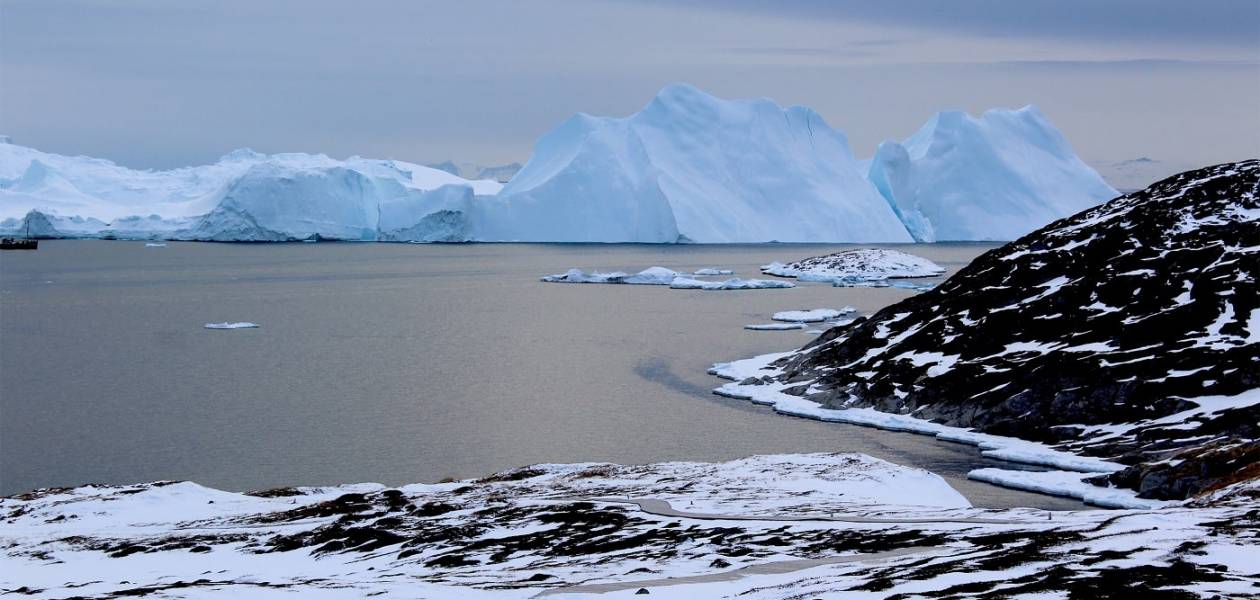
It just rained on the summit of Greenland for the first time since weather records were kept
The Greenland ice cap has just experienced its first rains. A historic date since it never happened. This marks a sad and disturbing new stage on the path to ecological disaster that we are going through.
Like much of the Northern Hemisphere, Greenland experienced a massive heat wave with temperatures at the top of the glacier rising above freezing for the third time in less than a decade. On August 14, 2021, in a place normally far too freezing for water to fall in liquid form, the Summit station of the National Snow and Ice Data Center (NSIDC) recorded several hours of rain. "There is no previous report of precipitation at this location, which reaches 3,216 meters (10,551 feet) above sea level," NSIDC reported, noting that the amount of ice lost in one day was seven times greater. to the daily average for that time of year. “Greenland, like the rest of the world, is changing,” Ted Scambos, University of Colorado glaciologist at the University of Colorado, told the Washington Post. “We are now seeing three melting events in a decade in Greenland - and before 1990 it happened about once every 150 years. And now it's the rain: falling in a region where it has never fallen. "Like the heat wave in the [American Pacific] Northwest, this is something that is difficult to conceive of without the influence of global climate change. "Ice cores are formed in areas of the planet that do not usually base during the summer. Winter snow accumulates over thousands of years, compressing under the weight of new layers. Recent previous flows here have been caused by warm air temperatures, creating growing networks of summer lakes that can accelerate melting and destabilize the ice caps.
Not only does rain melt snow, contributing to increased melt events, it also has the added ability to play with longer term ice sheet dynamics. The rain, once it has fallen, then freezes into a darker layer of ice that absorbs much more heat than the thick white ice and snow that usually covers glaciers.
Once frozen, it will also form a smooth barrier, preventing meltwater from seeping below the surface. This can then flood the surface of the ice sheet, causing even more melt at higher elevations than the runoff usually affects. “During melting events, these processes can occur on parts of the ice sheet that usually do not melt, extending the impact of the phenomenon,” said NASA glaciologist Lauren Andrews. “They're happening more and more and they're starting to wreak havoc. "The Greenland ice sheet contains enough fresh water to raise the sea level by 6 meters (20 feet) and has a great influence on weather and climate. The recent IPCC report warned that exceeding 2 degrees Celsius of warming would trigger the collapse of this huge ice cap. This is one of the major tipping points of great concern to scientists. Indigenous communities living in this region bear the brunt of the consequences of its climatic upheavals and face major challenges related to the loss of ice and the disappearance of wildlife.
Beyond the direct impacts on sea level rise, the meltwater from Greenland is also expected to slow the ocean current of the Gulf Stream, which would alter tropical monsoon patterns, further endangering forests. humid tropics.
“We are crossing thresholds not seen in millennia, and frankly, that won't change as long as we continue to pollute the air the way we do,” Scambos told CNN. To do this, many of us around the world will need to work together to hold those responsible to account and help each other make better collective choices.
Posted on 2021-08-24 08:11








Comments